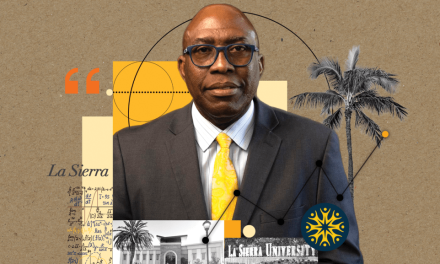
By Marnita Coleman,
Special to the AFRO
For generations, family Bibles held information on the important occurrences that took place in the Black family. African Americans trusted their bibles for much more than sacred writings— they also relied on the book to discover those who went before them.
Take a peek into that gigantic bible in the living room— a staple of Black homes in the past— and you’re sure to see a section dedicated to keeping family records in the center. Inscribed on those pages, readers found vital information about births, marriages and deaths that hold decades – sometimes centuries- of the family story.
Throughout the South, vital records were not generally recorded by the state until the 20th century. Some public records were sparsely maintained by cities and counties, but Black families took responsibility for recording their own history and important events.
Traditionally, a Bible was given by relatives as a wedding gift for the purpose of recording information about the newlyweds and their family tree.
Martha Jane Thomas, of Pikesville, Md. could barely lift her family Bible.
“It’s so big and heavy like the ones in the pulpit at church,” she observed. The 98-year-old remembered that her parents kept track of their family’s history by writing it in their Bible.
Thumbing through the pages of her family Bible, Thomas came upon the section for family records. Beginning with her parents’ wedding on Sept. 12, 1919, the handwritten notes detailed their address in Roxboro, N.C., the officiating preacher’s full name, and the names of two witnesses that were present. The journaling was maintained over a span of 67 years and included the birth dates of all 10 children, their marriages, and the names of their spouses. The last entry was made in 1986 which listed the death of Thomas’ brother-in-law.

Still today, the family bible represents a connection to God, family and other believers. For centuries, preachers have also told the stories of the Black community utilizing the pulpit to keep members encouraged and informed.
The Reverend Rodney L. Carter, Jr., associate pastor of Greater Mt. Calvary Holy Church in Northeast Washington, D.C. said church leaders have played an important part in the story of Black life after liberation.
“The pastor is one of the voices for the African American community—not just the Black church,” he said.
In his opinion, the story of Moses relates perfectly to the experience of African Americans.
“God was with the Israelites while they were in captivity and they sang praises similar to how African Americans, while in slavery, sang Negro spirituals. We hoped that God would deliver in the same manner as He did the Israelites,” said Carter. “The preached word also kept ‘us’ going during the civil rights movement,” he said, referencing when preacher and activist Dr. Martin Luther King, Jr., led African Americans through the wilderness of racism.
In many cases, oral history was used as a common way to preserve African American stories. Peter J. Allen and Milton Burke Allen, Jr., sons of the first Black man to be elected to a citywide office and the first Black State’s Attorney in the United States, Milton Burke Allen Sr., agree that their family’s history was more oral than written down— but they still had a Bible passed down decade after decade.
“My father’s sister was the family historian on that side, and my mother’s sister was the family historian on her side,” said Peter Allen. “We had a 100-year-old family Bible, but I don’t think there was much written in it. It was a big Bible for show, but not much of a record.”
The brothers were certain that their family history facts were checked and accurate. So much so that their history will be housed in the library of Johns Hopkins University in Baltimore, Md. for public review.
The Allen’s recalled stories of their great-grandfather being taken from West Africa and brought to Virginia right at the end of slavery. It was said that he organized a group of slaves who escaped by traveling at night and sleeping in trees during the day.
We were never told, “Sit down kids, I’m going to tell you your history. It would just come out. They were interesting stories like adventure stories, and we ate it up with spoons,” Allen said.
Family Bibles that are no longer in the possession of the family may be in a historical or genealogical society. They are sometimes transcribed and published in genealogical periodicals or other databases.
This month, as the AFRO looks back on the history preserved since the first Juneteenth, we encourage our readers to embrace their own origin story— which could be detailed in one of those humongous family bibles.
The post Telling our story: a look at the history passed down via church and the family bible appeared first on AFRO American Newspapers .











